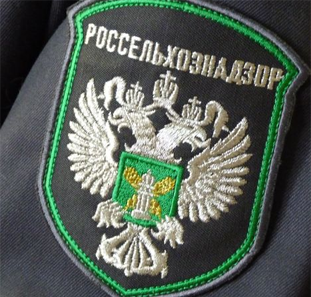Magnit plans to transfer expired products to feed and fertilizer manufacturers

 Express tests for determining the residual amount of β-lactams, tetracyclines, chloramphenicol, streptomycins in milk, whey
Express tests for determining the residual amount of β-lactams, tetracyclines, chloramphenicol, streptomycins in milk, whey PIONEER MEIZHENG BIO-TECH (5 in1) JC0586 - Antibiotic tests 5 in 1 / Rapid tests for determining the residual amount of β-lactams, tetracyclines and cephalexin in milk, whey
PIONEER MEIZHENG BIO-TECH (5 in1) JC0586 - Antibiotic tests 5 in 1 / Rapid tests for determining the residual amount of β-lactams, tetracyclines and cephalexin in milk, whey
One of the largest retailers in the country, Magnit, has set a goal to halve the amount of food waste sent to landfills by 2025. To do this, the company intends to optimize its purchases from suppliers, transfer products for processing, and also sell expired products to counterparties, Izvestia writes. “We started looking for buyers for food products that have lost their consumer properties: partners have been selected and contracts are being concluded. As part of this project, we have developed a scheme to write off and register expired products that continue to have value,” the company’s sustainability management documents say.
The press service of Magnit also said that a food-sharing project was recently launched in Moscow (this idea was supported by the Ministry of Industry and Trade in July). “Now we are preparing a pilot project to transfer products with already expired or broken packaging to animal feed and fertilizer manufacturers. We define goods and are looking for partners who will collect expired goods from stores, such as baked goods, for processing. If the pilot is successful, then we will gradually begin to scale it up, ”says a company representative. Magnit believes that this is a potentially effective way to reduce food waste at landfills.
As part of the pilot, the company will be guided by Decree of the Government of the Russian Federation No. 1612 dated 07.10.2020 - this document established the procedure for withdrawing hazardous products from circulation. Delay also falls under this term, follows from the law “On the Quality and Safety of Food Products” (29-FZ). Such goods can be sent for examination to confirm their safety, and then destroyed or disposed of. If the test is successful, then the products can be sent for processing and make animal feed.
Selling late to customers at a deep discount or donating it to charity is strictly prohibited, but using it in recycling on a reimbursable basis is the right rational step to reduce environmental impact, Igor Karavaev, chairman of the presidium of the Association of Retail Companies (AKORT), told Izvestia. Previously, AKORT has already estimated the average loss of food - up to 7% of the retail turnover. The annual volume of food waste in organizations that are members of the association can be 700 thousand tons. Of this, 25% falls on cakes, dairy gastronomy, deli meats, sausages and groceries. Another 30% - for meat, fish and poultry, 45% - for fruits and vegetables.
BUYERS OF EXPIRED PRODUCTS ON MEATINFO
Sergei Mikhnyuk, executive director of the National Feed Union, says that not all products that are produced and sold in retail chains can be used as secondary raw materials for feed production. “Farm animals form muscle mass from what they consume, and if there is expired jelly or cake in the store, what should we do with them? In expired vegetables, the process of rotting begins, and we have sterile production, there are E-additives in sausages, there may also be a discrepancy in cereals to a number of requirements, for example, in terms of moisture. It’s easier for us not to do this than to do it,” Mikhnyuk commented.
The fact is that the regulated procedures for the formation of a forage base and the production of compound feed for productive animals are much more serious than in the production of food for people, he explains. The proposal of the initiative to sell expired products is an attempt to shift the responsibility for subsequent disposal to the feed industry, its logistical or legal shortcomings, Mikhniuk said. “We know how serious the procurement contracts that are developed by retail chains are. Let them take it back to the supplier or debug their logistics,” he adds.
In 2020, he reported that State Duma deputies developed a bill that proposes to establish the possibility of circulating low-quality and dangerous food products that can be processed, including into fertilizers and animal feed. Later, the Ministry of Industry and Trade supported the initiative. Director General of the EAEU Feed Producers Association Vladimir Manaenkov then said that the innovation, if approved, could resonate with pork producers, but this is a matter of choice for livestock breeders. “Recycling must be competitive with other sources of raw materials in order to be of interest to livestock farmers,” he commented. In addition, processors of waste into feed will face the requirements of the Rosselkhoznadzor on safety and other difficulties.
























































